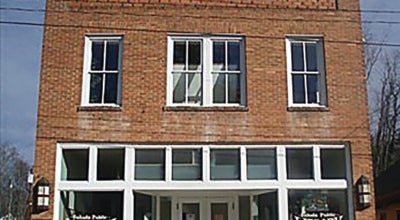Healthy heart topic at ICC wellness lunch
Published 5:34 pm Tuesday, April 3, 2012
On April 19 at Isothermal Community College, Polk Wellness Center will host a “Take Charge of Your Wellness Lunch & Learn.”
I will be there to talk about preventive health, discussing proactive ways to take control of your health by recognizing symptoms and receiving appropriate screenings. This discussion will include some of the common misconceptions about heart attacks, and perhaps, help you discover ways to avoid them.
Heart attacks, or myocardial infarctions (MIs), are often precipitated by episodes of angina, chest pain that is commonly described as a pressure or heaviness in the chest. Angina that comes about during increased physical activity but is relieved by rest is a warning sign that an MI is likely to happen. Continued chest pain despite rest is an indication that an MI has already begun.
Other symptoms of an MI are left-sided arm and jaw pain or tingling, non-musculoskeletal back pain, nausea, trouble breathing, sudden weakness and fatigue and sweating. Only one or a couple of these symptoms may be present, particularly for the elderly, women and diabetics, who tend to have “silent” MIs, or MIs without the classic symptom of chest pain.
Other common causes of chest pain are; the heartburn of gastroesophageal reflux disease (GERD), blood clots in the lung or pulmonary embolism (PE), gallbladder disease, panic attacks and other skin, muscle and bone conditions.
Sometimes the quality of the pain can help you to determine if it is coming from an MI. For example, musculoskeletal pain is usually an aching and that worsens with use of the muscles and joints involved. GERD causes a burning and full sensation that is felt more after eating a large or spicy meal. Chest pain caused by anxiety, or stress, can be tough to distinguish from cardiac pain as the quality can vary from sharp to heavy and can be accompanied by other similar symptoms such as sweating, nausea, light-headedness and a rapid heartbeat.
If you are concerned that you may have some of the warning signs of an MI, you should either see your health care provider (if the symptoms are short-lived episodes relieved by rest) or call 911 for emergency evaluation and transfer to the hospital (if your symptoms are more sudden, severe and unchanged by rest). The sooner you seek treatment for a MI, the less damage to your heart and the greater your chance for recovering and regaining some of your strength and energy.
Your risk of having a heart attack and the chances of surviving and recovering from it depend largely upon how you take care of your body. Tobacco use, obesity and uncontrolled high blood pressure, high cholesterol and diabetes always pave the way to heart trouble. Do what you have to do to reduce your risk. Research for, start and stick to a diet and exercise program, make and follow a plan to give up smoking once and for all and/or make an appointment with your family doctor to get your blood pressure, sugar and cholesterol back down.
Blood disorders, heart valve abnormalities and thyroid conditions also affect your heart health. Cocaine use increases your heart’s need for blood but decreases the blood flow to it. This is becoming an increasingly common cause of deadly heart attacks in young American adults.
A yearly physical will help your doctor monitor for any of these or other health risks that you may be unaware of.
For more information on how to improve your heart health or to receive medical treatment or mental health care, including drug addiction counseling, please call 828-894-2222.
This article was submitted by Amanda Hovis, P.A.-C at Polk Wellness Center. For more information about Polk Wellness Center, visit www.polkwellness.org or call 828-894-2222.





